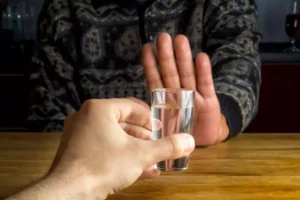
When you get clean and sober, you may feel a profound sense of loss. In order to make sense of that loss, it is important to say goodbye to your addiction and the toxic friendships that were forged in that addiction. The sooner you are able to make peace with your past, the sooner you can move forward.
Acknowledge Feelings Of Loneliness – Accept That It Is Normal
By understanding the various sources of stress in addiction recovery, individuals can begin to identify their unique triggers and develop strategies to cope effectively. This knowledge empowers individuals to take proactive steps to manage stress and protect their sobriety. There is no doubt that even as big as the world is, sometimes it can feel very empty and lonely.
Write A New Chapter In Your Life With Help From The Berman Center
Its effects are profound, influencing not just the psychological well-being of individuals but also their physical health and recovery outcomes. Finding interests outside of substance use can help you deal with issues of loneliness in more than one way. From reading groups or clubs to sports and exercise, new hobbies give you access to new communities and help build relationships with new people.

Colorado’s Rural Communities Offer Stark Evidence of Factors Reducing the Nation’s Life Expectancy
- With awareness, proactive efforts, and the right support, individuals can overcome feelings of isolation and pave the way for a successful and fulfilling recovery.
- During your addiction rehab sessions, you’ll likely spend plenty of time in group therapy.
- Here’s a roadmap filled with effective strategies to navigate this terrain.
- He was calm, gentle, and had a sort of caring wisdom about him that some dogs exude.
- If you’re feeling lonely, that may be an indication that it’s time to start mending those relationships.
Social support plays a powerful role in empowering you to face obstacles and overcome challenges. With the support of family, friends, therapists, counselors, and other individuals in recovery, you can tap into strength beyond loneliness in sobriety your own. When you stop taking drugs, you may lose some of your relationships. Isolation brought on by drug discontinuation is distinct from that caused by addiction, which may drive people to withdraw from social networks.
- “Pam used to belong to a book group – it was such an important part of her life,” he continued.
- The lack of meaningful relationships can leave individuals feeling unsupported, further isolating them.
- When you stop taking drugs, you may lose some of your relationships.
- That’s because a pet provides constant companionship without many of the more complex relationship elements inherent in human friendships.
Instead, practice self-compassion and remind yourself that you are doing the best you can in challenging circumstances. Sometimes, you need to reach beyond the people https://ecosoberhouse.com/article/the-importance-of-gratitude-in-recovery/ you know to find new ways to create relationships. If you are struggling with coping with loneliness, there are a few things you can do to overcome these challenges.


He said “solutions” like Prozac, or even socialising in “recovery groups” can reflect the idea that we should “abolish” loneliness. For members of the LGBTQ community, who far too often develop in the closet and experience identity shame and trauma, connecting to the experience of our own essence can be deeply reparative. The most important tip I often share with clients about the development of a daily spiritual practice is that a spiritual practice is something we have to practice. Any person who has experienced the closet has known shame—and identity shame compounded over time is itself trauma. Most of us think of trauma as rape, murder, death, war, or a catastrophic event or natural disaster. And while these are unequivocally traumas, a trauma is also experienced as a daily microaggression, such as anti-LGBTQ bias and time spent in the closet.
A therapist can help address the underlying causes of isolation. Counseling also treats co-occurring mental health issues like depression and loneliness-related anxiety. Loneliness acts as a major trigger for relapse during addiction recovery. The National Institute on Drug Abuse notes that the loss of substance use connections results in a gap that is difficult to fill. MBRP encourages people to sit with their cravings instead of reacting to them. They learn the rhythm of their cravings and discover they will always end.
- Attempting to navigate relationships and social events with non-users brings its own challenges.
- Instead, practice self-compassion and remind yourself that you are doing the best you can in challenging circumstances.
- Take the first step of your recovery journey by contacting us today.
- So next time you grab a cup of coffee or see your neighbor on a walk, strike up a conversation.
The Power of Person First Language in Addiction Treatment
Our treatment philosophy is based on a comprehensive and integrated approach to addressing all issues related to substance use and mental health disorders. We leave nothing to guesswork as we utilize therapeutically proven, evidence-based clinical practices. We place superior patient care as our highest priority and offer them all-inclusive treatment services. Accept that feelings of loneliness are normal, and remember that things will get better as you continue your recovery. Understanding yourself, and enjoying your own company is a major way to fight loneliness.